The Future of Spiritual Formation in the Korean Context
April 19–20, 2023
The event will be held virtually and in person on Fuller’s Pasadena campus. Registration is required.
등록을 위해 한국어 이벤트 정보와 등록안내를 방문하세요: 등록 정보
KSC Symposium 2023
Fuller Seminary’s Korean Studies Center (KSC) warmly invites you to our annual symposium, “The Future of Spiritual Formation in the Korean Context,” this spring.
From the start of its establishment, one of the distinctive hallmarks of Korean Christianity is its emphasis on spiritual formation, along with its dedication to the study of the Bible. As a unique spiritual and cultural response to the national crisis in the early 20th century, a series of revivals took place in Korean Protestant churches, which started from sagyeonghoe, a gathering of Bible study groups. The revival meetings brought an enthusiasm which made it possible for Korean Christians to confidently spread the gospel and keep their faith even in difficult times. As a result, spiritual formation has been regarded as part and parcel of Korean evangelical Christianity, in addition to David Bebbington’s four characteristics of evangelicalism (biblicalism, crucicentrism, conversionism, and activism). However, in light of the many changes in the Korean church context in recent years, the traditional practice and understanding of spirituality requires re-examination and revision for the contemporary context.
The symposium, to be partly live-translated into English, aims to discuss the theory and practice of Christian Spirituality in Korean context in order to provide insights for the ministries of the church, missionaries, and other parachurch organizations. The symposium will feature outstanding scholars on the subject area, both from Korea and the US, as plenary lecturers, while breakout sessions will allow for examination of the topic from theological, biblical, psychological, and sociological perspectives.
This event offers a great opportunity to interact with scholars and leaders through in-depth practical conversations between local church pastors, thematic lectures, case study presentations, and plenary discussions.
Chapel Speaker
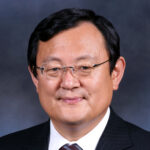 Dr. Jeong Kii Min
Dr. Jeong Kii Min
Chung Hyeon Mission Church
Pastor Emeritus
Dr. Jeong Kii Min served as senior pastor of Chung Hyeon Mission Church in Los Angeles for nearly 20 years (2003–2022) and is now pastor emeritus. He is currently the vice president of the Korean Christian Mission (KCMusa) and the former 41st president of the Council of Korean Churches in Southern California. His recent publications include Sin and Politics: Issues in Reformed Theology; Korean Political Theology and Political Ethics; Hereditary Succession of Church: Bring it to the Heavenly Court; Goel Talks to the Church and The Victory Song of the People of Heaven in the Book of Revelation.
Plenary Lecturers
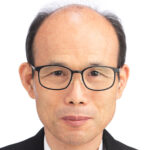 Dr. Hae-yong You
Dr. Hae-yong You
Mosegol Community Church, South Korea
Senior Pastor
Dr. Hae-yong You studied spirituality at Fordham University, earning a PhD and an MDiv in PUTS, and then worked as a professor and spiritual leader at Presbyterian University and Theological Seminary. After retirement, he is currently serving as the senior pastor of the Mosegol Community Church. His books include God Experience and Spiritual Exercises, Prayer Experiences and Spiritual Guidance, and Traces of Spirituality.
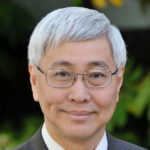 Dr. Siang-Yang Tan
Dr. Siang-Yang Tan
Fuller Theological Seminary
Senior Professor of Psychology, Clinical Psychology Department
Rev. Dr. Siang-Yang Tan is senior professor of clinical psychology at Fuller Theological Seminary, and senior pastor emeritus of First Evangelical Church Glendale. He now serves as spiritual director of the American Association of Christian Counselors (AACC). He is a licensed psychologist and fellow of the American Psychological Association. He earned his PhD from McGill University, and he has published numerous articles and books, including three major texts, Counseling and Psychotherapy: A Christian Perspective, Lay Counseling (with Eric Scalise), Shepherding God’s People: A Guide to Faithful and Fruitful Pastoral Ministry, Full Service, Coping with Depression (2nd ed., with John Ortberg), Rest, and Disciplines of the Holy Spirit (with Douglas Gregg). Dr. Tan is originally from Singapore. He is married to Angela and they live in Pasadena, California.
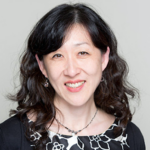 Dr. Grace Ji-Sun Kim
Dr. Grace Ji-Sun Kim
Earlham School of Religion
Professor of Theology
Rev. Dr. Grace Ji-Sun Kim was born in Korea, educated in Canada, and now teaches in the United States as professor of theology at Earlham School of Religion. Kim received her PhD from the University of Toronto and is the author or editor of 21 books, most recently, Invisible, Keeping Hope Alive, and Intersectional Theology.
She is the host of the Madang podcast, which is sponsored by The Christian Century, and is an ordained Presbyterian Church (USA) minister. More of her writing and work can be found on her blog, Loving Life.
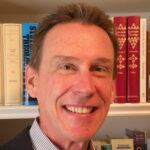 Dr. Dennis L. Okholm
Dr. Dennis L. Okholm
Azusa Pacific University
Professor, Department of Theology
Rev. Dr. Dennis Okholm taught theology and church history for 40 years, most recently at Azusa Pacific University. After 28 years of being ordained in the Presbyterian Church (USA), for the past 10 years he has served as an Anglican priest and canon theologian. Among several authored and edited books, his 2007 publication, Monk Habits for Everyday People: Benedictine Spirituality for Protestants, has recently been published in Korean.
SCHEDULE
Please note, all times are listed in Pacific Time. All sessions will be translated into English and Korean, except for thematic breakout sessions where noted.
Wednesday, April 19
10:00–11:00 am Fuller Chapel with guest speaker, Rev. Dr. Jeong Kii Min, Chunghyeon Mission Church, Los Angeles
1:10–2:25 pm Plenary Lecture 1: “New Wine into Old Wineskins (Mark 2:22): The Footsteps of the Korean Church’s Spiritual Formation” with Dr. Haeyong You, Mosegol Community Church, South Korea
This thesis aims to study the past, present, and future of the spirituality of the Korean church that has been formed around the Holy Spirit movement for a century and a half, because the Christian spiritual life is not different from the life of the Holy Spirit. The Great Spiritual Awakening movement around 1907 gave birth to a “new wine”-like church––the Korean church––in the same land as the old wineskins. This movement led to the Pentecostal Spirit movement after the liberation from Japanese colonialism and the Korean War. The Korean church that was born in this way has grown into a church that shares the sufferings of all kinds of people. On the other hand, this Pentecostal movement also left a dark side to this church. This thesis attempts to draw conclusions about the life of the Spirit and the spirituality of future generations that the Korean church should open by considering this series of the Holy Spirit movements in a diachronic manner.
2:25–2:40 pm Coffee Break
2:40–3:55 pm Plenary Lecture 2: “The Relationship of Spiritual Health with Mental and Emotional Health: A Biblical Perspective” with Dr. Siang-Yang Tan, Fuller Theological Seminary
The relationship of spiritual health with mental and emotional health will be covered, using the biopsychosocialspiritual model of human functioning that focuses on the physical, mental-emotional, social, and spiritual aspects of human life (cf. Luke 2:52). The six criteria of the mentally healthy individual according to Marie Jahoda (1958) will be compared and contrasted with the eight didactic statements on a Christian perspective on mental health proposed by Vernon Grounds (1976). Spiritual health is not synonymous with mental and emotional health, although they overlap. It is possible to be spiritually mature or healthy in Christ and yet suffer from mental and emotional anguish or problems in this fallen world (e.g., the blessings of mental anguish, and the dark night of the soul). How a local church pastor can facilitate the development of spiritual and mental and emotional health in church members through Christian spiritual formation will also be covered.
3:55–4:10 pm Coffee Break
4:10–5:40 pm Thematic Lectures (Breakout Sessions)
- Theme 1: Bible and Korean Spiritual Formation (Principle/Role of Bible in Korean Spiritual Formation) (English lecture; *Korean translation provided) – Travis Auditorium
- 4:10–4:40 pm Thematic Lecture 1: Living with the Word: Biblical Principles for Christian Spirituality – Dr. Tom Schwanda, Wheaton College
This presentation is framed by three preliminary principles regarding Scripture: biblical knowledge is never enough to make a Christian, it must be internalized, when properly read the Bible has a transformational nature, and Scripture must always be read in context and interpret other portions of the Bible. Exodus 3:1–15 and Romans 8:1–17, 26–27 will be used as two case studies to illustrate some central biblical principles for Christian spirituality. These include God’s revelation for human experience, the importance of noticing and worshiping God, God’s desire to be with humanity, God calling and sending his people on mission, freedom in Christ from sin, the indwelling of the Holy Spirit, belonging to God and sharing in his inheritance as his children, the Holy Spirit’s ministry to believers, and his intercessory guidance in prayer. - 4:40–5:10 pm Thematic Lecture 2: The Rule of St. Benedict and Lectio Divina in the Obsessive Korean Context – Dr. Euiwan Cho, Fuller Theological SeminaryFaith comes by hearing the Word of God. With careful listening, we can restore our core relationship with God and be sensitive to the voices of ourselves and others. The key to love is listening. However, it becomes increasingly difficult to attend to the culture of narcissism, where all kinds of devices show off the self. In particular, in the spiritual climate of Korean Protestantism, which tends to focus on external activity and church expansion, the discipline of listening to God, who speaks quietly, hardly finds its place. This study argues that Lectio Divina, in the monasticism that has continuously inherited and developed the tradition of listening, especially in Benedictine spirituality, will contribute as an alternative Bible reading pedagogy in an increasingly obsessive social context such as Korea. First, it will demonstrate how Lectio Divina is emphasized in the daily life of the monastery as a practice of reading the Bible in The Rule of St. Benedict, who has been called the father of Western monasticism. Next, the article will examine the elements of Lectio Divina (lectio, meditatio, oratio, contemplatio) and their theological importance in Benedictine Spirituality. Through this, the pedagogy of reading as intellectual satisfaction and reading as prayer (listening) will be compared. Finally, the article will demonstrate how Lectio Divina differs from today’s Bible reading in Korea and suggest a few theological contributions that Lectio Divina can provide to Christians in an obsessive culture.
- 4:10–4:40 pm Thematic Lecture 1: Living with the Word: Biblical Principles for Christian Spirituality – Dr. Tom Schwanda, Wheaton College
-
- 5:10–5:40 pm Q&A
- Theme 2: Spiritual Formation and Burnout (Korean lecture; no translation provided) – Payton 102
- 4:10–4:40 pm Thematic Lecture 3: Pastoral Burnout and Spiritual Formation – Dr. Young Ok Kim, Fuller Theological Seminary
Pastors face numerous demands; their work exacts gargantuan effort, seemingly without end. As a result, pastors’ physical, emotional, spiritual, relational, and mental health can be compromised. A Barna Group survey (2021) found that many pastors are in danger of burnout, with 38 percent of pastors seriously considering leaving full-time ministry. Burnout for church/pastoral leaders is not a new phenomenon in contemporary ministry. Often these concerns are vastly underreported and remain unaddressed in church settings. Thus, addressing burnout warrants examination through theological, psychological, and cultural perspectives by learning more about its causes, symptoms, prevention, and intervention. The biblical example of the prophet Elijah in 1 Kings 19 exhibits specific emotional and behavioral symptoms of burnout. Additionally, when Elijah encounters God at the mountain of Horeb, the passage delineates ways of navigating burnout. In the current presentation, we will discuss relationships between spirituality and burnout, as well as the specific spiritual practices contributing to pastors’ well-being.
- 4:10–4:40 pm Thematic Lecture 3: Pastoral Burnout and Spiritual Formation – Dr. Young Ok Kim, Fuller Theological Seminary
-
- 4:40–5:10 pm Thematic Lecture 4: Spiritual Formation for the “Canaan Believers” – Dr. Chae-Yong Chung, Graduate School of Practical Theology, South KoreaThe term "Canaan believers" has been used in Korean churches for quite a while now. Canaan believers are those who possess the identity of a Christian but who do not attend church, rather they are likely to be involved in searching for a "new" church. They are seen as being the Israelites who wandered in search of Canaan. The term also refers to those who choose not to attend church or those who purposely refuse to join an "established" church. There is a play on words in Korean, as the word "CaNaAn" backwards by syllable is AnNaCa which means "does not attend." These people have left the institutional church because they are disgruntled with it and want to exercise their faith freely, unbound by the framework of an establishment. In that sense, the Canaan phenomenon encompasses the characteristics of a non-institutional church renewal movement.
The problem is that Canaan believers are not able to maintain their faith as well as those who attend church. According to the research I have done, Canaan believers do maintain their faith to some level, but compared to those who attend church, their faith life is very lacking. In a limited manner and each in their own way, they try to maintain the life of a believer through the Christian disciplines of Bible reading, prayer, and giving offerings. Among this group, those who profess to have the assurance of salvation have been seen to have a greater willingness to attend established worship services, to have better experiences in them, and are able to better maintain their fundamental faith lives. But mostly, the fact that these faith activities are on an individual level–instead of a corporate level–poses a problem to the individual Canaan believer. Faith is maintained and strengthened through community. An even greater problem with this kind of individualized faith is the difficulty of passing anything on to the next generation (though the original believer themself may maintain their faith.) Thus there is a need for a method to bring Canaan believers into a new community, even though that community may not be an established church. Attention must be paid to methods to help their spirituality to be maintained, developed, and trained in that new community.
- 4:40–5:10 pm Thematic Lecture 4: Spiritual Formation for the “Canaan Believers” – Dr. Chae-Yong Chung, Graduate School of Practical Theology, South KoreaThe term "Canaan believers" has been used in Korean churches for quite a while now. Canaan believers are those who possess the identity of a Christian but who do not attend church, rather they are likely to be involved in searching for a "new" church. They are seen as being the Israelites who wandered in search of Canaan. The term also refers to those who choose not to attend church or those who purposely refuse to join an "established" church. There is a play on words in Korean, as the word "CaNaAn" backwards by syllable is AnNaCa which means "does not attend." These people have left the institutional church because they are disgruntled with it and want to exercise their faith freely, unbound by the framework of an establishment. In that sense, the Canaan phenomenon encompasses the characteristics of a non-institutional church renewal movement.
-
- 5:10–5:40 pm Q&A
Thursday, April 20
1:00–2:15 pm Plenary Lecture 3: “Reimagining Spirit” with Dr. Grace Ji-sun Kim, Earlham School of Religion
The Spirit presents itself to many as an enigma. Its existence is mysterious and complex, generating misunderstandings and unawareness of its true purpose. The Spirit’s ambiguous nature opens the opportunity for study to unearth the exciting truths that it holds.
The Spirit is present in our world in various forms. This lecture will examine the Spirit as experienced in light, wind, breath, and vibration to help us uncover some of its aspects that invite us to work for climate justice, racial justice, and gender justice. The Holy Spirit has always been a mover and shaker of ideas and action. The Spirit’s presence moves, stirs, and changes us to become aware of the social ills in our world.
2:15–2:30 pm Coffee Break
2:30–3:45 pm Plenary Lecture 4: “Worn Paths and Fellow Travelers on the Journey to Spiritual Maturity” with Dr. Dennis L. Okholm, Azusa Pacific University
There are theological, ecclesiological, soteriological, and sociological reasons why it is important for the Korean Christian Church to access the historical traditions that have to do with spiritual formation: (1) the immensity of God’s reality requires wisdom that avoids chronocentrism and parochialism, as Paul expressed in Ephesians 3:14–19 (“with all the saints”); (2) we have no right to tell the church where to go if we don’t know where it’s been; (3) salvation is a slow process of sanctification that involves wise guidance from others; and (4) becoming change agents in society requires the church to live an alternative culture that results from cultivation of spiritual life rather than consumptive preoccupation with the latest fads. Beyond resources within the Korean Protestant tradition, the Roman Catholic and Eastern Orthodox traditions, which by 1054 began to emerge out of an undivided Christianity, have much to offer with a sacramental orientation, a communal emphasis over against typical Protestant individualism, an activism moderated by contemplation, and a balance of disciplined human agency enabled by grace (without being Pelagian). Specific examples will be given. Still, to be avoided are occasions of syncretism (e.g., praying to saints with ceremonial ancestor worship in Jesa) and hierarchicalism that might compromise democratic social fabric. In the global context, embracing the chronologically and situationally diverse Christian tradition will enrich and enliven the Korean church as it draws more deeply from riches that go beyond its own boundaries.
3:45–4:00 pm Coffee Break
4:00–5:30 pm Thematic Lectures (Breakout Sessions)
- Theme 3: Spiritual Direction for the Korean Protestants (Korean lecture; no translation provided) – Payton 102
- 4:00–4:30 pm Thematic Lecture 5: Reflection and Challenges of Spiritual Direction in Korean Context – Dr. Kang Hak Lee, Torch Trinity Graduate University, South Korea
Formal spiritual direction is a ministry of conversation, in one-to-one or small group settings, which helps a Christian to form an intimate relationship with God by recognizing God's presence and responding to God's calling. The ministry of spiritual direction has been gradually expanded in Korean Protestant churches. This paper explores the history and current situation of spiritual direction in Korean Protestant churches. This paper explores the history and current situation of spiritual direction in Korean Protestant churches, under the three categorizations of seminary, center, and church. Next, this paper probes the limitations and challenges of the ministry of spiritual direction in Korean Protestant churches and presents some of its possibilities. Major issues can be summarized as follows: cultural differences in spiritual direction for Koreans, strategies of applying the ministry of spiritual direction to pastoral settings, possibilities of lay spiritual directions, the relationship between churches and spiritual direction centers, whether spiritual direction is for all Christians, and the possibilities of incorporating spiritual direction into pastoral (or Christian) counseling.
- 4:00–4:30 pm Thematic Lecture 5: Reflection and Challenges of Spiritual Direction in Korean Context – Dr. Kang Hak Lee, Torch Trinity Graduate University, South Korea
-
- 4:30–5:00 pm Q&A
- Theme 4: The Place of Neighbor in the Korean Spiritual Formation (English lecture; *Korean translation provided) – Travis Auditorium
- 4:00–4:30 pm Thematic Lecture 7: Spirituality Formation for the Missional Churches – Dr. Enoch Kim, Fuller Theological SeminaryIn modern society, while the explosion of media and networks causes a deluge of information, people access information selectively depending on the group to which they belong. The inner-group communication is smooth due to their social norm and consensus, but groups with strong social norms filter out and use only a part of the outside information. This information filtration and competitive environment for survival creates neo-unreached groups that exhibit bias and anger toward others outside the barrier. The church’s traditional evangelistic outreach has almost no influence on such a neo-unreached group. This paper explores what spirituality should be in modern society by re-examining the attitude of the Good Samaritan. The spirituality of the Samaritan, who courageously crossed over prejudice and cultural barriers, and showed mercy, will enable today’s Christians to overcome the limitations of traditional ministry and illuminate God’s missionary plans here on earth. In addition, it will disclose the importance of courageous reconciliation and forgiveness in the gospel.
- 4:30–5:00 pm Thematic Lecture 8: Sabbath God and Kingdom Justice in Korean America – Dr. Daniel Lee, Fuller Theological SeminaryThe “Model Minority God” occupies Korean America. This idol of White achievement, performance, and status is not only toxic for the personal and communal health of Korean Americans, but also for their love of their neighbors. This paper analyzes the reason why this Model Minority God has such a hold on Korean Americans and their spiritual life, as well as how its malaise manifests within the spiritual life of the Korean American church. Propped up and supported by broader societal forces, as well as by powers within the Korean American community, the worship of this Model Minority God quietly aligns with the status quo for upward mobility and familial gain, while laying aside those who are marginalized and oppressed, even within the Korean American community. The biblical witness to the Sabbath God and the corresponding practices of Sabbath offer a path out toward life and kingdom justice for all.
- 5:00–5:30 pm Q&A
5:30–6:30 pm Dinner – Payton 101
6:30–8:00 pm Panel Session: Spiritual Formation and the Future of Korean Church
Panelists: Dr. Haeyong You, Dr. Kang Hak Lee, and Rev. Dr. Sang Hyun Shim
Breakout Session Lecturers
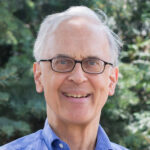 Dr. Tom Schwanda
Dr. Tom Schwanda
Wheaton College
Associate Professor Emeritus of Christian Formation and Ministry
Rev. Tom Schwanda is associate professor emeritus of Christian formation and ministry at Wheaton College and adjunct associate professor in Christian spirituality at Fuller Theological Seminary, where he teaches in both the KDMin and DMin programs . He received his DMin from Fuller Seminary and his PhD from Durham University, UK. His extensive publications include Emergence of Evangelical Spirituality: The Age of Edwards; Gazing on Jesus with Gratitude: The Piety of Isaac Ambrose, Puritanism and Emotion in the Early Modern World’; Soul Recreation: The Contemplative-Mystical Piety of Puritanism; and Celebration of God’s Presence: The Transforming Power of Public Worship.
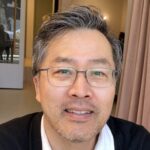 Dr. Euiwan Cho
Dr. Euiwan Cho
Fuller Theological Seminary
Associate Professor of Christian Spirituality and Ministry
Dr. Euiwan Cho is associate professor of Christian spirituality and ministry and program chair of the Korean Doctor of Ministry program at Fuller Theological Seminary. Dr. Cho studies Christian spirituality, focusing on desert spirituality and monasticism and their implications for pastoral ministry. In his book iChurch and Seven Deadly Sins, Dr. Cho analyzes consumer-Christianity and emphasizes the need to pay attention to the voice of fourth-century desert spirituality. In his recent book Desert Spirituality and Urban Ministry, he explores the origins and subsequent development of Egyptian desert spirituality and its theological and practical implications for Protestants.
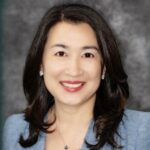 Dr. Young Ok Kim
Dr. Young Ok Kim
Fuller Theological Seminary
Adjunct Professor of Christian Counseling
Dr. Young Ok Kim was born and raised in South Korea. She served as an overseas missionary with OM for ten years before becoming a clinical psychologist in the United States. She holds four master’s degrees (Divinity, Intercultural Studies, Marriage and Family, and Clinical Psychology), and a PsyD from Wheaton College. Currently she teaches at Fuller Theological Seminary as an affiliate professor, serves as a board member of Narramore Christian Foundation (NCF), and serves as president for Korean American Wellness Association (KAWA), a nonprofit organization. Her publications include God’s Wounded Servants: Exploring the Lived Experience of Trauma, Missionaries, Mental Health, and Accountability.
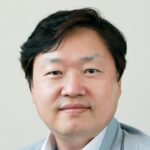 Dr. Chae-Yong Chung
Dr. Chae-Yong Chung
Graduate School of Practical Theology, South Korea
Professor of Sociology of Religion
Chae-Yong Chung earned his PhD at Sociology at Yonsei University and teaches sociology of religion at the Graduate School of Practical Theology in South Korea. His interests lie in the problems of the institutionalization of church, and he has researched and written books on the phenomenon of the “Canaan believer.” Recently, he has written a book on the non-institutionalized church, Christians Who Don’t Attend Church, A Continuing Challenge: The Rise of Non-Institutionalized Churches, Sociology of Small Groups. He has participated in developing various statistical surveys of the Korean church, including Korean Church Trends 2023.
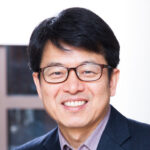 Dr. Kang Hak Lee
Dr. Kang Hak Lee
Torch Trinity Graduate University, South Korea
Associate Professor of Practical Theology
Kang Hack Lee is associate professor of practical theology/Christian spirituality at Torch Trinity Graduate University in South Korea. Dr. Lee graduated with a BS from the Department of Mechanical Engineering at Seoul National University and with an MDiv from the Presbyterian Theological Seminary in South Korea. He received a PhD in Christian Spirituality from Graduate Theological Union in Berkeley, California. Currently, he teaches Christian spirituality at Torch Trinity Graduate University and trains spiritual leaders. He leads PRESENCE, a community of spiritual leaders serving as supervisors. He edited Spiritual Training Beginning Today, and translated The Way of Discernment: Spiritual Practices for Decision Making (Elizabeth Liebert) and Supervision of Spiritual Directors (Rebecca Bradburn Langer and Mary Rose Bumpus).
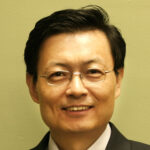 Dr. Enoch J. Kim
Dr. Enoch J. Kim
Fuller Theological Seminary
Associate Professor of Communication and Mission Studies
Dr. Enoch J. Kim is associate professor of communication and mission studies at Fuller Theological Seminary’s School of Mission and Theology and Korean Studies Center. He currently serves as the director for the Doctor of Global Leadership program and for the Korean PhD in Intercultural Theology program. His publications include Mission Strategy in the City and Receptor-Oriented Communication.
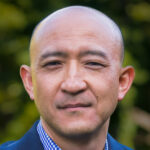 Dr. Daniel D. Lee
Dr. Daniel D. Lee
Fuller Theological Seminary
Academic Dean for the Center for Asian American Theology and Ministry, Assistant Professor of Theology and Asian American Studies
Dr. Daniel D. Lee serves as the founding academic dean of the Center for Asian American Theology and Ministry and as assistant professor of theology and Asian American studies at Fuller Theological Seminary. An ordained Presbyterian minister, he has served in a number of ministry contexts, including campus ministry, chaplaincy, Korean immigrant churches, pan-Asian ministry, and multiethnic churches. He is also the author of Doing Asian American Theology: A Contextual Framework for Faith and Practice, Double Particularity: Karl Barth, Contextuality, and the Asian American Theology, and various book chapters and articles.
FULLER THEOLOGICAL SEMINARY ADDRESS AND CAMPUS MAP
Travis Auditorium
Fuller Theological Seminary
180 N. Oakland Avenue
Pasadena, CA 91101
CAMPUS MAP
Click the map image to view a PDF of the campus map.
Directions and Parking
Click "Directions" on the map to get driving and public transportation directions from your location.
Parking
Complimentary parking is available in the exterior lot (185 N. Madison Ave.) behind the School of Psychology & Marriage and Family Therapy.
Limited street parking may also be available on Oakland Ave. Please be sure to read city parking signs carefully.
Additional paid parking is available at 473 E. Union St., Pasadena.
WHERE TO STAY
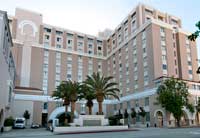
The Westin Pasadena
(.2 miles from campus)
191 North Los Robles
Pasadena, California 91101
Phone: (626) 792-2727

Hilton Pasadena
(.5 miles from campus)
168 S. Los Robles Ave
Pasadena, CA 91101
(626) 577-1000
Hilton Pasadena corporate rate: 10% off the lowest advertised rate
Reservations can be made using our Corporate ID #2975411
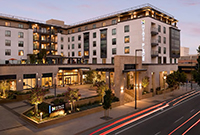
Hyatt Place Pasadena
(.4 miles from campus)
399 E. Green St
Pasadena, CA 91101
(626) 788-9108

Sheraton Pasadena
(.6 miles from campus)
303 Cordova St
Pasadena, California 91101
Phone: (626) 469-8100
$169/night (single or double occupancy, standard room) off lowest rate advertised.
Add Booking Code E3B under Special Rates Section when reserving a room.
Stay in the Loop
Save the Date for the 2024 KSC Symposium to be held April 10–11, 2024.
Wisdom Traditions and the Public Church
지혜전통과 공적교회
Sign up here to stay informed.

